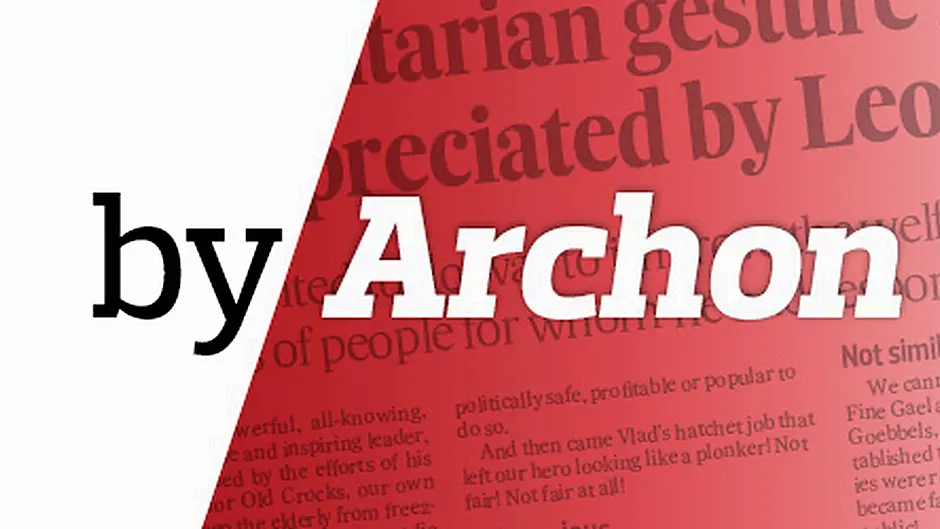IT’S that time of year again: the office Christmas party which, supposedly, takes place to boost staff morale, motivate workers and help build rapport with management – particularly in cases where bonuses aren’t an option and staff have to swallow the line that the company is skint.
From the point of view of the boss, the Christmas social gathering is a reward for working hard and an opportunity to enjoy Yuletide good cheer with fellow workers. Managers get the opportunity to engage with the staff on a personal level and to endorse publicly the vital role staff play in meeting the company’s business objectives.
It’s a complicated procedure that is not as popular as rewarding employees with a monetary bonus, but much more cost-effective!
Importantly, once management and staff get into the festive mood, stresses and inhibitions are relaxed and a workforce rapport develops that is good for long-term productivity.
Needless to say, some management experts are of the opinion that the typical Christmas party is a waste of time and money. They argue that it is impossible to fulfil the good intentions of management at a communal ‘piss-up’ where, in the absence of spouses, clients and owners, the event turns into an orgy of excessive drinking (cheapo-Spanish wine), the wearing of funny hats, silly prizes for silly achievements and, in certain circumstances, the practice of indiscriminate sexual activity.
Company folklore
And. although the break from stress and deadlines is intended to promote team spirit and an enhanced corporate performance, the Christmas parties that become part of company folklore are those that were raucous and over-the-top.
Such as when the boss failed to reach the jacks in time, projectile vomiting took place in unusual places, there was much weeping on various shoulders, and stumbling around the room looking for more drink became quite common, as did falling down the stairs, breaking a tooth and waking up in the toilet the next day.
But last week came the nail in the coffin: A company of senior solicitors warned of the potential lawsuits and serious proceedings that could follow when a Christmas party went wrong.
They pointed to nightmare scenarios of ‘sexual misconduct’ and that the Irish Congress of Trade Unions claimed that 20% of sexual harassment in the workplace has its roots in social events!
Nor did the legal eagles share management enthusiasm for the idea that the Christmas party led to team-building, bonding, enhanced motivation and loyalty. Indeed, an interesting fact is that a few years ago the Institute of Leadership and Management revealed that almost 30% of employees said their drunken behaviour at the Christmas ‘do’ adversely affected their career prospects.
Proper decorum
The lawyers explained that matters can become serious when a staff has ‘issues’ with management and takes its work problems from the office to the party. Then, fuelled with alcohol, they tell the boss what they really think of him/her: generally that he/she is an obnoxious piece of …. !
Often the rancour has its origins in the previous year’s Christmas party when the boss promises an employee promotion or more pay. On returning to reality, the boss totally forgets the heart-warming pledge. But the office prole hasn’t!
The experts in orgiastic festivity and labour law recommend that employers should remind their clerical employees that the Christmas knees-up is an extension of the workplace and, consequently, an adherence to the company’s high standards of behaviour has to be maintained.
It also is incumbent on bosses to be familiar with the legal risks associated with holding a Christmas party and of the strategies they can resort to in the event of claims relating to sexual harassment or personal injury.
What’s more, the company’s policies on such matters should be up to date and that managers have an understanding of the reputational implications of a successful harassment claim.
Cut back on booze
The significance of any accusation of sexual harassment should be explained to staff some days before the party takes place, and the terms of the Employment Equality Acts should be circulated in the event of the Christmas celebration turning into a litigious dogfight. For instance, an accusation of sexual harassment – however slight – can lead to two years’ gross remuneration for the complainant and to the company’s good name being dragged through the gutter!
The lawyers go further: They say that to avoid litigation bosses should insist that food and non-alcoholic drinks are on offer for the duration of the event and that senior members of staff should be present to ‘keep an eye on things.’
They recommend that alcoholic beverages be made available only ‘within reasonable limits and not excessively.’ A cut-off time in the consumption of alcohol is very important.
They also advise that in instances of staff suffering what boozers in West Cork refer to as the ‘falleee-downs’ and can’t make it to a taxi, a responsible employee (sober) should assist the afflicted person in their efforts at securing transport to take them home. Again, the fear is that injury to a staff member might lead to a compensation claim being lodged against the employer.
And, under no circumstances should photographs of the convivial activity of the employees be posted on social media websites. Likewise, the practice of photocopying one’s buttocks for the amusement of others is forbidden as it could lead to reputational damage to the company.
No lingerie, please!
Nor should the practice of embarrassing male workers with gifts of lingerie be encouraged. Last year, a garment known as the ‘California Muscle’ (an ‘open-butt bodysuit with a black mesh front’) was presented to a portly executive of an unnamed company. Although the incident was described as ‘hilarious,’ the gesture was not appreciated by the recipient of the gift.
It also should be borne in mind that the idea of a corporate Christmas party for employees may not be everyone’s cup of tea. An eminent female accountant recently commented to us: ‘What! A Christmas party? At work? With the people I work with? Can’t I just poke myself in the eye instead?’
Which prompted us to search for the true meaning of the Christmas party. No, it’s not to celebrate the birth of Santa, nor is it designed to be a great way to catch up with people you haven’t seen in twenty minutes!
Indeed the best comment on such events was uttered by a trainee secretary who was wise beyond her years. She said: ‘What I don’t like about office Christmas parties is looking for a job the next day!’







